
Promoting this type of publishing contributes to shaping the foundation, creating an active position in the global knowledge competition. If digital transformation is considered a major driving force for the publishing industry, e-books are the most important "gateway".
Readers find it difficult to accept superficial products.
According to information from the Vietnam Publishing Association, in the first half of 2025, the rate of electronic publications (by book title) will reach over 15% and this is an important criterion to assess the industry's progress in digitization. Publishers and technology enterprises increasingly recognize the importance of electronic publishing as an inseparable part of the digital transformation of the publishing industry. In addition to pure e-books, many digital publications have added audiobooks, talking books, interactive features (multimedia, images, sounds) to attract young users, the elderly and special reading groups.
The development of e-books in 2025 has become a strategy in promoting culture and knowledge. With digital books, everyone, even in remote areas, can easily access them through electronic devices. Providing free or cheap audiobooks and ebooks is an important step to ensure fairness in access to knowledge. E-books have also become the focus of the strategy to build a learning society in a flexible, diverse way, suitable for each individual. In addition, authors, translators, and publishers also have great opportunities in developing their brands.
A representative of the Department of Publishing, Printing and Distribution said that more than 60% of domestic publishers have implemented content digitization; many units have initially used AI in editing, personalizing reading experiences, analyzing reader needs and producing e-books. The National Political Publishing House Truth is a typical example. With the launch of the "President Ho Chi Minh e-bookcase" consisting of 135 books on the occasion of the 135th anniversary of his birth, the unit has affirmed an important step forward in spreading Ho Chi Minh's thoughts on cyberspace. Recently, the exhibition "80 years of the Journey of Independence - Freedom - Happiness" held at the National Exhibition Fair Center (Dong Anh, Hanoi) also showed the outstanding mark of e-books and audiobooks. The space for experiencing digital books has attracted a large audience, especially young people, showing the appeal of the new reading trend in the technology era.
Through major events marked by digital books, it is possible to see profound changes in readers' knowledge acquisition habits. Specifically, they do not stop at reading but want to experience, interact and co-create. At the exhibition "80 years of the Journey of Independence - Freedom - Happiness", the moment when poet Tran Dang Khoa touched the e-book "The Sea of Human Hearts" (Information and Communication Publishing House), was surprised and moved when hearing the sound of ocean waves, looking at the image of distant islands, attracting many readers in the persuasion of the combination of technology and emotions. Poet Tran Dang Khoa shared that, according to his observation, young people approach books in a very flexible way: reading, listening, and learning about expanded data via QR codes. They do not consider e-books as copies of printed books but as an open world of knowledge with the demand to "live with" the work in many states.
The ever-increasing demands of readers mean that publishers must innovate comprehensively. In addition to digitizing their book collections, they must also collaborate with a team of engineers, designers, sound experts, and artists to create complete digital works. This requires investment resources, a strict copyright mechanism, and professionalism in operations.
Opportunity to become more professional
While the world is entering the new generation of e-books with many technological breakthroughs, the domestic publishing industry is still facing a large gap. Besides technical issues, there are also strategic issues related to creative capacity, infrastructure, market and legal framework. In developed countries, e-books and audiobooks are shifting strongly to highly interactive models. Many applications also integrate AI to analyze reading behavior, provide highly personalized suggestions, helping readers have an experience suitable for their own interests and learning needs.

Despite initial efforts, Vietnam still faces many obstacles in accessing these global trends. First, financial and technological resources are still limited, not enough to synchronously develop AR/VR products or multi-voice audiobooks. In addition, network infrastructure and equipment are not really popular, especially in disadvantaged areas. The legal framework related to copyright, especially in the field of voice-cloning and AI translation, is still incomplete. In addition, because the domestic e-book market still operates on a small and fragmented scale, the level of payment for digital products is not high, making publishers and technology businesses hesitant to make large investments. In addition, the issue of human resources for digital content creation, programming engineers, interactive experience design, etc. is also immature and lacking.
Mr. Nguyen Nguyen, Director of the Department of Publishing, Printing and Distribution, commented: “To achieve results, it is necessary to clearly answer the question: What is the purpose of digital transformation? What value do units gain from it? Otherwise, it is easy to fall into a situation of only changing the form, chasing after external products. In fact, digital transformation needs to focus on new markets. This is a problem that we have been doing for many years but not thoroughly. Sometimes, there are figures showing stable growth but the difficulties ahead are huge.”
In this year's key directions and tasks, the Department proposes that units need to increase investment in technical infrastructure, modern technology, and human resources to make electronic publishing a spearhead of development. Some accompanying solutions are to perfect the legal corridor; build and perfect digital infrastructure from central to local levels; develop shared databases; create a national database on publishing, printing, and distribution; increase the application of Big Data and AI technology... Digitizing and "identifying" the treasure trove of literary, historical, and scientific works can expand the scope of dissemination in the country, while bringing Vietnamese works to the world.
To narrow the gap in integration and development, the domestic publishing industry needs a long-term strategy, synchronizing management, operation and innovation. It is necessary to focus on training digital human resources in the publishing sector, perfecting the legal framework on digital copyright, author rights and voiceover rights, in order to create a transparent environment and encourage investment.
According to experts, to develop according to the cutting-edge requirements, each unit needs to choose a priority testing field, take care of groups of readers who are ready to accept innovation, and at the same time be consistent with the country's strategy of improving people's knowledge. The development of e-books, gradually integrating with international trends, is an important part of the strategy of building new Vietnamese people who are rich in knowledge, brave, and capable of mastering technology. This is a task that cannot be delayed, contributing to making reading culture continue to become a solid foundation for the country's development process in the digital age with many opportunities and challenges.
Source: https://nhandan.vn/xu-huong-moi-trong-phat-trien-sach-dien-tu-post910863.html



![[Photo] Hanoi morning of October 1: Prolonged flooding, people wade to work](https://vphoto.vietnam.vn/thumb/1200x675/vietnam/resource/IMAGE/2025/10/1/189be28938e3493fa26b2938efa2059e)










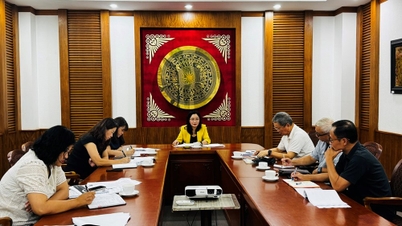
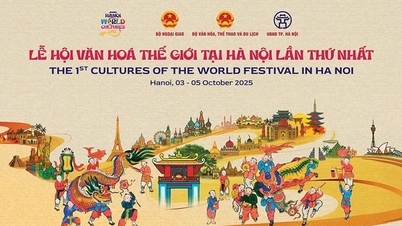





![[Photo] Hanoi morning of October 1: Prolonged flooding, people wade to work](https://vphoto.vietnam.vn/thumb/402x226/vietnam/resource/IMAGE/2025/10/1/189be28938e3493fa26b2938efa2059e)

![[Video] Warning of high-tech criminals appropriating assets from cyber security incidents at CIC](https://vphoto.vietnam.vn/thumb/402x226/vietnam/resource/IMAGE/2025/10/1/9e967e621dc240bfbb70e926d503a177)

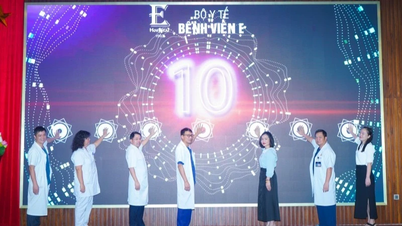
![[Photo] The 1st Congress of Phu Tho Provincial Party Committee, term 2025-2030](https://vphoto.vietnam.vn/thumb/1200x675/vietnam/resource/IMAGE/2025/9/30/1507da06216649bba8a1ce6251816820)
![[Photo] President Luong Cuong receives President of the Cuban National Assembly Esteban Lazo Hernandez](https://vphoto.vietnam.vn/thumb/1200x675/vietnam/resource/IMAGE/2025/9/30/4d38932911c24f6ea1936252bd5427fa)
![[Photo] Panorama of the cable-stayed bridge, the final bottleneck of the Ben Luc-Long Thanh expressway](https://vphoto.vietnam.vn/thumb/1200x675/vietnam/resource/IMAGE/2025/9/30/391fdf21025541d6b2f092e49a17243f)























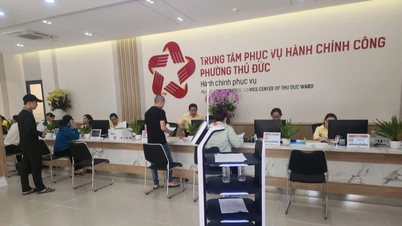


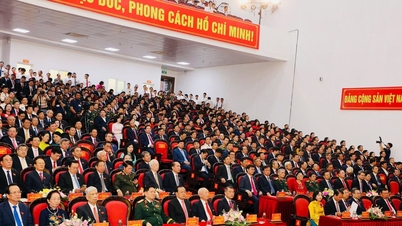

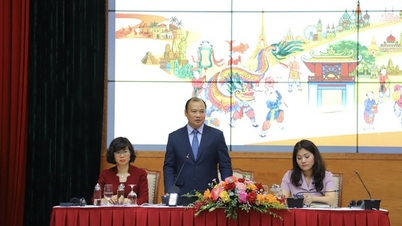












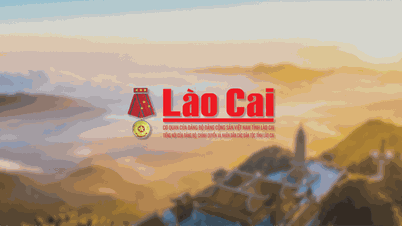

















Comment (0)